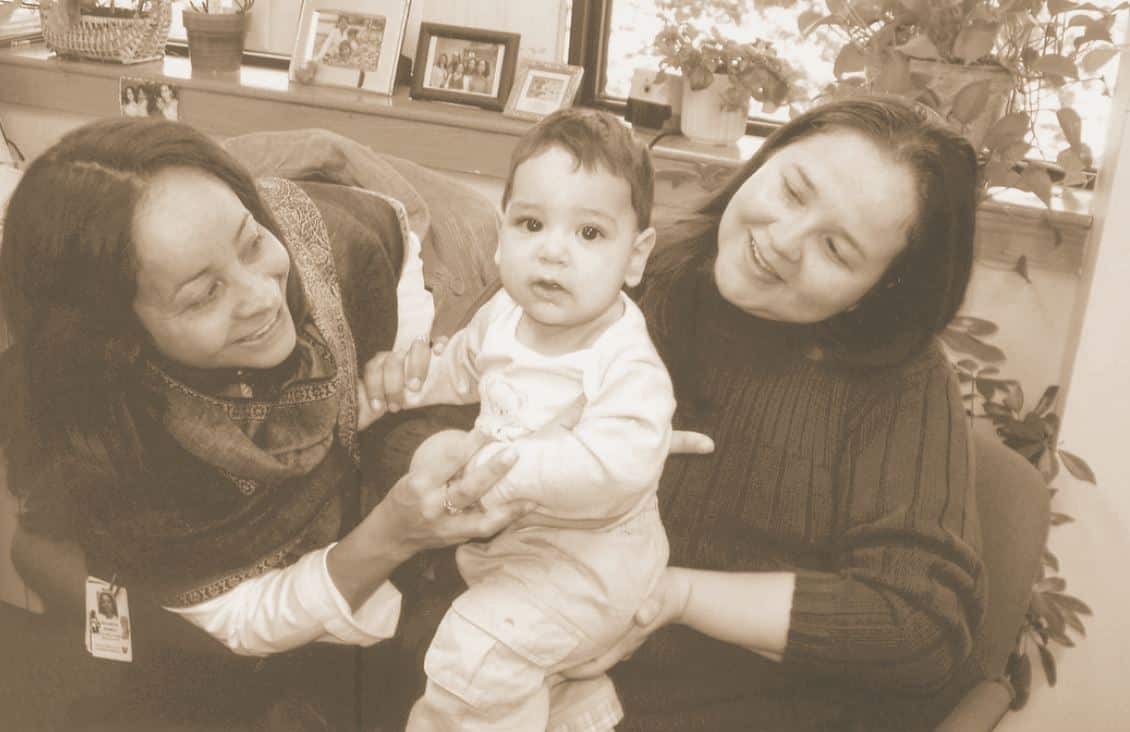This article describes how the Visiting Moms Program in Chelsea, Massachusetts, has taken the paraprofessional model one step further to respond to the needs of refugee and immigrant new mothers, by employing paraprofessional home visitors who are also immigrants or refugees themselves.
Research suggests that the highest risk families, such as those living in poverty or struggling as newcomers to the United States, benefit the most from home visitation (Gomby, Culross, & Behrman, 1999). In many homevisiting programs, the nature of the relationship between the mother (most often the main program participant) and the home visitor is the very foundation of the program’s process, progress, and success (Heinicke & Ponce, 1999; Paris & Dubus, 2005). Through the established relationship between the two women, the home visitor provides emotional and practical support, education, role modeling, and companionship for the new mother. The home visitor may also help her to initiate other activities when needed, such as making alternative housing arrangements, scheduling pediatric appointments, or visiting with attorneys regarding immigration. The multilingual/bicultural home visitor can aid the new mother in learning the practices of the host country (e.g., by explaining the pediatrician’s expectations and by clarifying confusing laws and unfamiliar documents). In addition, she helps the new mother consider both ethnically traditional and mainstream health services.
Download the PDF to read the full article.




